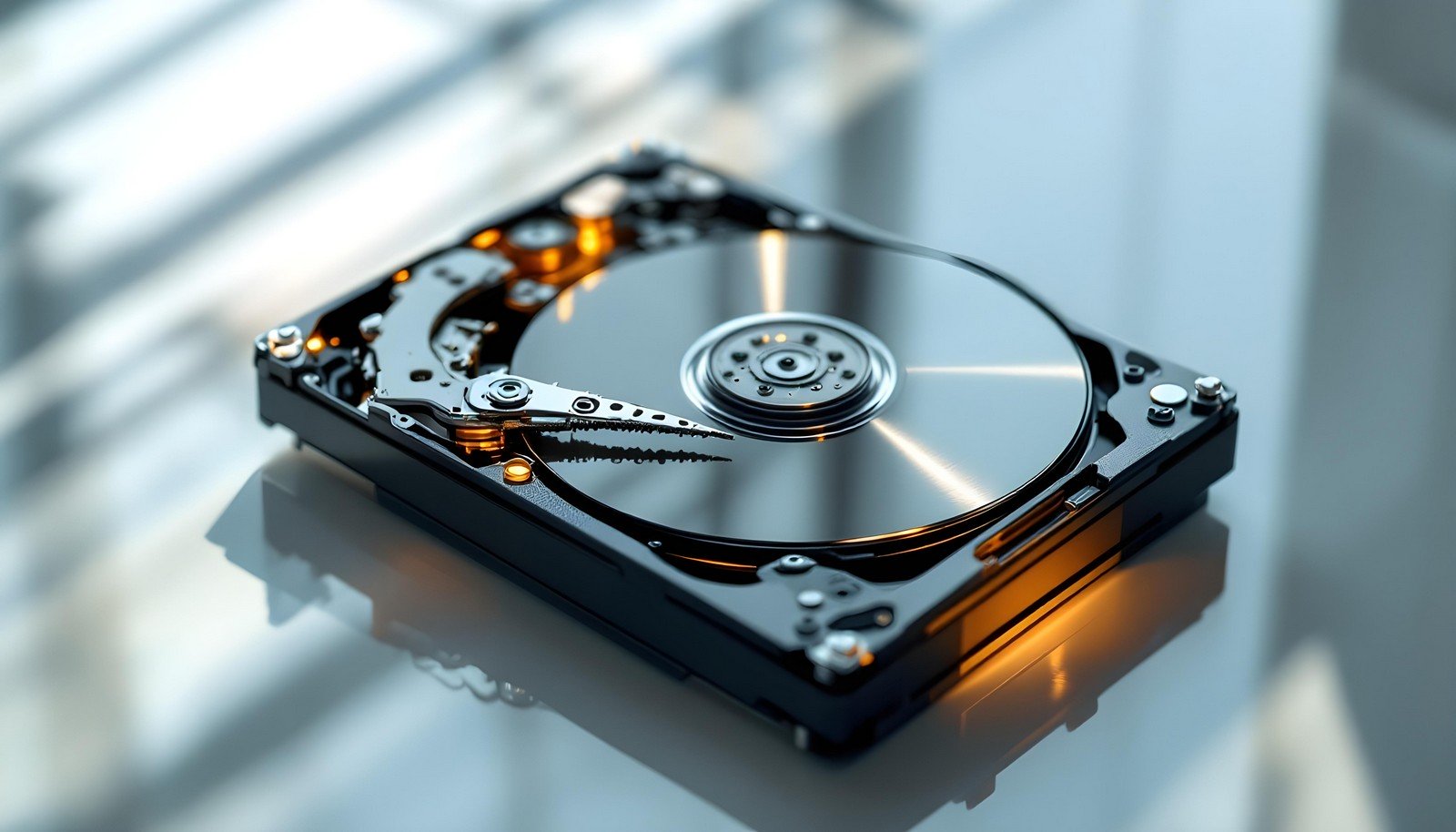Hard Disk Drive

Quick Navigation:
- Hard Disk Drive Definition
- Hard Disk Drive Explained Easy
- Hard Disk Drive Origin
- Hard Disk Drive Etymology
- Hard Disk Drive Usage Trends
- Hard Disk Drive Usage
- Hard Disk Drive Examples in Context
- Hard Disk Drive FAQ
- Hard Disk Drive Related Words
Hard Disk Drive Definition
A Hard Disk Drive (HDD) is an electro-mechanical data storage device that uses magnetic storage to store and retrieve digital information. It consists of one or more rigid rotating platters coated with magnetic material and read/write heads mounted on an arm to access the data. HDDs are a key component in computer systems for long-term data storage and are known for their large storage capacities at a relatively low cost.
Hard Disk Drive Explained Easy
Imagine a large library where each book is placed on a shelf and labeled with a unique tag. When you want to read a book, a librarian quickly fetches it for you. Similarly, a hard disk stores data (like books) and retrieves it with a special tool called a "head." It's like your computer's brain storing and finding stuff when you need it.
Hard Disk Drive Origin
The Hard Disk Drive was first introduced by IBM in 1956 with the IBM 305 RAMAC system. It was a significant innovation in data storage, replacing punch cards and tape storage systems. Early HDDs were large and expensive but laid the groundwork for modern storage solutions.
Hard Disk Drive Etymology
The term "hard disk" comes from its rigid magnetic platters, contrasting with the flexible "floppy disks" used during the same era.
Hard Disk Drive Usage Trends
With the rise of SSDs (Solid-State Drives), HDDs have seen a shift in usage trends. While SSDs dominate for speed and durability in modern laptops and desktops, HDDs remain popular for archival storage, servers, and cloud infrastructure due to their affordability and capacity. Hybrid storage systems that combine SSDs and HDDs are also common.
Hard Disk Drive Usage
- Formal/Technical Tagging:
- Data Storage
- Magnetic Storage
- Computer Hardware - Typical Collocations:
- "Hard disk drive failure"
- "External hard disk drive"
- "Hard disk partition"
- "Hard disk read/write speed"
Hard Disk Drive Examples in Context
- Many companies use large HDDs for backing up their critical data due to their high capacity.
- A portable external HDD is often used to transfer large files between computers.
- HDDs in cloud servers store user data in data centers worldwide.
Hard Disk Drive FAQ
- What is a hard disk drive used for?
It is used to store digital data such as documents, photos, and operating system files. - How is an HDD different from an SSD?
HDDs use magnetic storage, while SSDs use flash memory, making SSDs faster but more expensive. - Can HDDs be repaired?
Minor issues can be fixed, but severe damage, like physical platter damage, may require professional data recovery. - What are the advantages of HDDs?
High capacity and low cost compared to other storage options. - What is the average lifespan of an HDD?
Typically 3-5 years, depending on usage and environment. - Do HDDs work with all computers?
Yes, but compatibility may depend on the interface (SATA, USB, etc.). - What is HDD fragmentation?
Fragmentation occurs when files are stored in non-contiguous sectors, slowing access time. - How do you maintain an HDD?
Regular defragmentation and avoiding physical shocks can extend its life. - What are some famous HDD brands?
Popular brands include Seagate, Western Digital, and Toshiba. - Can HDDs be used in gaming systems?
Yes, though SSDs are now preferred for faster load times.
Hard Disk Drive Related Words
- Categories/Topics:
- Data Storage
- Magnetic Media
- Computing Hardware
Did you know?
The first HDD by IBM in 1956 had a storage capacity of just 5 MB and weighed over a ton. Today, HDDs can store several terabytes of data and fit in the palm of your hand.
PicDictionary.com is an online dictionary in pictures. If you have questions or suggestions, please reach out to us on WhatsApp or Twitter.Authors | Arjun Vishnu | @ArjunAndVishnu

I am Vishnu. I like AI, Linux, Single Board Computers, and Cloud Computing. I create the web & video content, and I also write for popular websites.
My younger brother, Arjun handles image & video editing. Together, we run a YouTube Channel that's focused on reviewing gadgets and explaining technology.



Comments powered by CComment